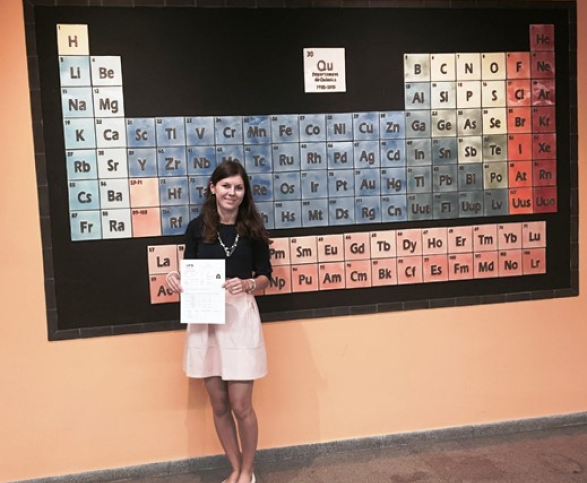Hubert Górka, who studied in the United Kingdom, answers the questions. Hubert is a graduate of the University of Westminster.
Why did you decide to study abroad?
The idea of pursuing my master’s degree abroad was certainly linked to the positive experiences of completing a semester of my undergraduate studies through the Erasmus+ program. After returning from the Erasmus+ exchange, I was convinced that I wanted to take advantage of the opportunity to study abroad again at the next stage. While writing my bachelor’s thesis, my interest in marketing began to focus on the area of digital marketing, and perspectives of working remotely from various parts of the world started to form in my mind. I then realized that a degree from a university in London could be decisive for my career.
What were the biggest challenges you faced?
Due to studying in London, the biggest problem arose even before starting and it was finding accommodation. Unfortunately, not all universities offer dormitory places, and if they do, the number is very limited. When renting a room in a private apartment, a big problem can be finding potential roommates. Therefore, I recommend starting the search for accommodation well in advance (at least 3 months before the planned departure), using brokerage offices, or considering student accommodation.
What were the biggest advantages of studying abroad?
The study program focused on tasks performed in positions related to the field of study, such as marketing strategies for real companies. Subjects addressing current market needs, like “Social Media and Content Marketing,” business simulations, obtaining certificates desired in the job market (Google Analytics, Scrum Master certification), and learning tools useful at work like Adobe Premier Pro. I also met new people and made lifelong friendships; for example, in February I plan to attend a wedding in India of a friend I met during my studies in England.
What was the application and admission process like for a foreign university?
The application for a master’s degree starts much earlier than in Poland. Documents like a Personal Statement, CV, a copy of the passport, and documents confirming academic results had to be submitted 4 months before receiving the bachelor’s degree diploma. If the university considers our current results and the estimated final grade from the first stage of studies sufficient, we receive a “conditional offer.” Then, by the deadline set by the university, we need to submit the results of an exam confirming sufficient knowledge of English (the most popular are TOEFL or IELTS) and the bachelor’s degree diploma. Then we receive an “unconditional offer” from the university, and after paying the tuition deposit, the university issues a document ‘Confirmation of Acceptance for Studies (CAS)’, which allows the process of applying for a Student Visa, necessary to start studies in the UK after Brexit.
What were the differences between the education system abroad and in Poland?
The biggest difference is the form of subject assessments. At the University of Westminster, I did not have a single exam; all assessments were based on essays, sometimes additionally on group project presentations. The second significant difference was the process of writing the master’s thesis. At a Polish university, I prepared the thesis for about 6 months, and its chapters were regularly submitted to the supervisor for verification. In England, although from the second semester there was a subject focusing on the theory around writing the thesis, such as research methodology, only 8 weeks were allocated for writing the thesis itself, and the supervisor’s “control” over the entire process was incomparably smaller, requiring much more independence and good work organization.
How did your career path go? What do you do today?
The master’s degree from a university in London was undoubtedly a significant advantage, which certainly caught the attention of recruiters and was often mentioned in job interviews. Fortunately, thanks to completing a foreign university, I had distinctive education, the courage to change my place of residence again, and the confidence that I would eventually find the opportunity I was looking for. A few months ago, I was entrusted with the position of Junior Content Development Specialist at Allegro, closely related to my field of study, the topic of my master’s thesis, and my hopes for further career development. To the readers, I wish perseverance in seeking opportunities to pursue their dream job and I highly recommend gaining experience while studying abroad, including through unpaid internships.
Do you have any advice for someone who also wants to study abroad?
Completing studies abroad leaves lifelong memories, distinguishes us in job interviews, and motivates us to take on further bold challenges. When I think about my future and consider the possibility of working abroad, I know that a degree from a foreign university will definitely help me achieve this plan, and thanks to the experience from my studies, I am confident that I can take on such a challenge. Above all, I encourage you to take advantage of the opportunities offered by the Maspex Foundation scholarship – such chances do not happen often!


